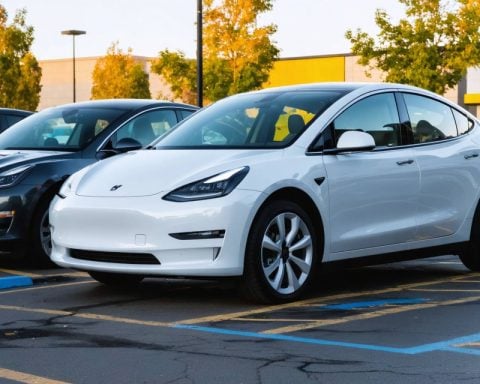In a recent online tirade, tech mogul Elon Musk sparked a debate by criticizing the F-35 fighter jet, labeling it “obsolete” and a costly “master of none.” Musk, who now heads the Advisory Committee on Government Efficiency, known as DOGE, took aim at traditional military spending, suggesting a shift towards drone technology.
Elaborating on his thoughts, Musk showed a video featuring a fleet of synchronized drones, questioning the wisdom of investing in expensive manned fighter jets. He argued that such crafts, like the F-35, are relics in the modern era where drones reign supreme, saving lives by eliminating the need for pilots in combat scenarios.
The implications of Musk’s statements are profound, hinting at a potential pivot in U.S. military strategy that could impact global allies. The F-35 program, which has amassed costs exceeding $2 trillion over decades, bears a heavy financial burden, with modernization efforts alone projected at $16.5 billion, according to the United States Government Accountability Office.
Despite its hefty price tag, the F-35 remains central to many allied military doctrines, including Israel’s, where it reportedly played a vital role in covert operations against Iran. While some analysts commend the aircraft’s performance, Musk’s advocacy for drones suggests a significant philosophical shift on the horizon.
Ultimately, whether Musk’s perspective will influence the future of the F-35 remains uncertain, as the reach and authority of his advisory role with DOGE continue to be evaluated.
Is Drone Warfare the Future of Military Strategy? Elon Musk Weighs In
In a recent statement, tech innovator Elon Musk ignited a discussion on the future of military technology by criticizing the F-35 fighter jet and touting drones as a superior alternative. This has led to an intense debate among defense experts, policymakers, and technologists about the evolving landscape of military strategy.
The Rise of Drone Technology
Musk emphasized the advantages of drone technology, highlighting their cost-effectiveness and ability to operate without risking human lives. Compared to traditional manned aircraft like the F-35, drones can be rapidly produced and deployed at a fraction of the cost. With the advent of AI and autonomous systems, drones are becoming more capable of executing complex missions independently. This innovation presents a paradigm shift, potentially rendering some aspects of traditional air combat obsolete.
Pros and Cons of Drones vs. Manned Aircraft
Pros of Drones:
– Cost Efficiency: Drones are significantly cheaper to produce and maintain than advanced fighter jets like the F-35.
– Safety: Eliminates the risk to pilot life, making high-risk missions more feasible.
– Adaptability: Easily updated with new technology, allowing for rapid advancements in capabilities.
Cons of Drones:
– Vulnerability: Potential susceptibility to electronic warfare and hacking.
– Limited Endurance: Some drones have restricted operational range and payload capacity compared to manned fighters.
– Ethical Concerns: Use of autonomous drones raises questions about accountability in warfare.
Global Military Trends
As countries worldwide evaluate their defense priorities, a noticeable trend towards integrating drone technology into military operations is emerging. Nations like China and Russia have invested heavily in UAV (Unmanned Aerial Vehicle) development, pushing for more autonomous warfare solutions.
Market Analysis and Predictions
The global drone market is anticipated to grow substantially, driven by increased demand for military and civilian applications. The technological race to enhance drone capabilities is leading to breakthroughs in AI-driven decision-making and swarm technology, where multiple drones can operate in a coordinated manner for complex operations.
Potential Impact on U.S. Military Strategy
Musk’s comments could influence the Pentagon’s strategic assessments, especially as cost-efficiency and minimizing life risk remain top priorities. While the F-35 program continues to play a crucial role in allied defense strategies, the rise of drones could lead to an increased focus on hybrid warfare tactics that combine manned and unmanned platforms.
For more insights on military technology and defense innovations, visit Defense.gov to explore further.












